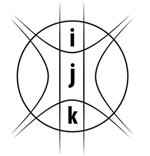2011 (6)
Sunday, 31 July 2016 22:17
Choices with no, in other words: Why the affirmative choice leads to disappointment
Written by Mlakár Katalin
If you can choose between two possibilities, you can act in two ways: either you say ‘yes’ to one of the possibilities, or explicitly ‘no’. In the latter case you choose to what you said neither ‘yes’, nor ‘no’. If there are more possibilities, then the procedure is similar: either a 'yes' will immediately select one of the possibilities, or a series of ‘no’s will lead to a choice where there are only two possibilities to choose from. With ‘no’ or a series of ‘no’s, the choice meets Tarski’s and, based on that, Karl Popper’s method: according to their statements, the criterion of truth does not exist, so the approach to the truth is through the exclusion of falsity. Karl…
The Ten Commandments also include the prohibition of lying, but with an important restriction: "Do not give false witness against your neighbour." In this commandment there are two curiosities: • It is not generally prohibited to lie. It would have been much easier to command not to lie. Obviously, there is an important reason and/or purpose for the more complex composition. • It is prohibited to lie against a certain person. Leszek Kolakowski - my favourite philosopher - writes about lies that we judge deceptions in the world of animals in different ways. If the mimicry protects the life of the animal, it is appreciated, but not if the purpose of deception is getting the loot. This is consistent with…
I read again into Hadamard’s1 wonderful book which is about mathematicians’ minds according to its title, about the psychology of mathematical invention according to its subtitle, however, its real subject is good old intuition. No matter how old the concept of intuition, it is unknown and therefore mysterious. But we have everyday experience in it. Not only mathematicians, artists, scientists "use" it but all people do the same every day, without knowing it. Its everydayness is uncovered by the Hungarian proverb "sleep on it", in other words, "the morning is wiser than the evening". These phrases actually advise us to listen not only to our minds but to our insights as well when making difficult decisions. So it is an…
According to Karl Jaspers, evil is the so called “own opinion”, evil is absolute selfishness: it ignores the interests of others. In essence, I agree with this. And from this it also follows that evil is an own goal: the environment - society – punishes the absolute selfishness, because it threatens the members of society and so itself1. Thus, this approach also connects evil to the ignorance in one’s own opinion, the worng vision of past and future. This means that the evil commits its evil acts on the ground of incorrectly interpreted motives, it is unaware of the future consequences of its actions. __________________________________ 1 The ‘goodness’ of the existence in society lies in this.
Abstract: If you define the existent as what exists is what "has an effect", then the potentially existent also exists. The in the present - at different points in space – currently existents have no effect on each other because any effect known to us spreads by an infinite velocity, i. e. time is needed until an effect gets from one point of space to another. ... Mathematics deals with potential and actual existent as well. The set of natural numbers is potentially infinite. Cantor's notion of an infinite number turned the existence of an infinite number to an actual existent. This infinite number is not constructed from an existing number, but he said that it is beyond all existing…
Abstract: I try to approach the problems of philosophy by the means of mathemathics. Thus, a conflict of faith and knowledge, or rather their unity will be approached by a mathematical metaphor. Knowledge is a point in the information field, as I imagine, and belief is a vector. The greater the likelihood of faith, the longer vector, I think, and the greater the potency. The vector has a direction, just as faith does which gives direction to our actions. More precisely, faith based on knowledge governs our actions. In bold: the material points correspond to the knowledge points, and the belief system, or motivational system, is the equivalent to the field force. ...



